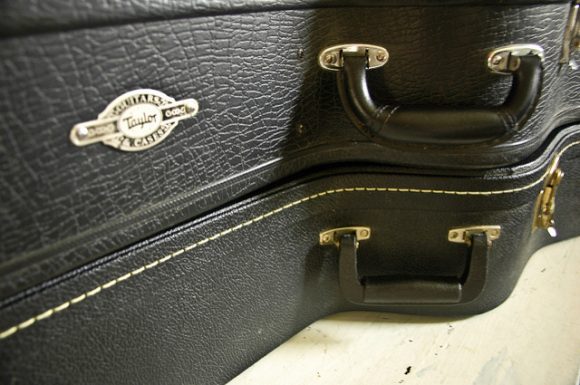Brand Doppelgangers: What to do when your brand identity is compromised
The web is a dangerous place. With ransomware and hackers threatening corporate security, there is one digital hazard that is often overlooked until it is too late: doppelganger brands.
A Doppel (double) Gänger (walker) is a paranormal double of a person. A doppelganger brand creates negative perceptions of a brand and can be detrimental to a company. It can confuse customers and lead to brand avoidance.
From names and logos to parodies and advertisements, a doppelganger brand can take on many forms. What’s more frightening is that it can come from anywhere. Doppelganger brands can be created by former customers, activists, competitors, and even complete strangers that have nothing to do with the brand.
Intentions Matter
To effectively fight a doppelganger brand, a company must first determine the doppelganger’s intentions. This will allow the primary brand to choose the best approach to deal with the threat.
1. Accidental Doppelgangers
Not all brand doppelgangers are trying to ruin your company. However, the negative effects could be just as harmful.
In early 2013, a chocolate company named Italo Suisse decided to rebrand their company as ISIS Chocolates. The brand had long since abandoned their Italian and Swiss roots, settling in Belgium instead. Shortening their name seemed like a clever way to pay homage to their founder, who had learned how to craft chocolate in Italy and Switzerland.
Unfortunately, 2014 gave rise to the Islamic State of Iraq and Syria and the Levant also known as ISIS. Sales for the chocolate brand decreased significantly the year following their rebranding, with customers tying the chocolate brand’s name to the terrorist group.
Accidental doppelganger brands are often cases like ISIS Chocolates. They are a simple case of bad timing and unfortunate circumstances. In the ever-changing world of current events, accidental doppelganger brands are impossible to prevent. When one appears, it is important that companies analyze the trends and determine whether it would have a permanent adverse effect to keep using their name. If a company decides to keep the name, they should prepare for revenue to decrease for a certain time period and hope for the best. Sometimes, the financial loss due to the doppelganger association could be too big of a financial hit, making the costs associated with a rebranding a small price to pay.

2. Constructive Criticizers
Some doppelganger brands are created out of frustration with the primary brand. In efforts to bring attention to the issues surrounding a brand and their inconsistent messaging, doppelganger brands may create parodies or satires of the primary company.
After one of his flights landed while he was on tour with his band, award winning musician Dave Carroll noticed that the baggage handlers were throwing his guitar into the baggage claim cart. After initially approaching an agent to talk about the situation, he was readily dismissed. Later that day, Dave Carroll opened his guitar case and noticed that the base of the guitar had been smashed. After increasing amounts of effort trying to get United Airlines to reimburse his guitar, United chose not to take responsibility for the damage. What followed was a public relations disaster for the airline company.
Doing what he did best, Dave Carroll wrote a group of catchy and humorous songs about his experience with United Airlines called United Breaks Guitars. The songs became viral instantly and have been viewed on YouTube more than 15 million times. The scandal was rumored to reduce United’s market cap by 10%. While that may not be entirely true, it is reasonable to believe that it was damaging to United’s brand.
Dave Carroll’s attacks against United were not unreasonable. In fact, his campaigns against United questioned the authenticity of their brand. United Airlines, like any other airline, would often advertise that they were there to benefit and respect their customers. Carroll’s true to life songs gave an accurate portrait of how United would actually treat some of their customers and conflicted with the brand’s messaging.
In an effort to improve their customer service reputation, United began issuing personal responses to every user on Twitter who shared part two of the United Breaks Guitars song. Part two of the three part series more directly focused on how United Airlines consumer escalation policy was alienating towards consumers. The company stated that they had learned from their mistakes with Carroll, that they were providing their agents with better ways to escalate and respond to special situations, and that a vast majority of their baggage is delivered on-time without incident.

When confronting a constructive criticizer, it is important to note that they likely have a legitimate point and should not be dismissed. One way to fight these types of doppelganger brands is to work directly with their creator in order to try to improve your own brand image. Another tip is to listen to customers and create programs to fix the outstanding issues that are causing grief. The most important way to fight this type of brand doppelganger is to show improvement and make it well known to consumers.
3. Malicious Intent
Some doppelganger brand creators don’t wish to solve a problem or even question a brand’s authenticity. Instead, they’re created just to wreak havoc on the primary brand.
The “i” prefix has been a staple of the Apple brand since the launch of the first iMac in 1998. However, doppelgangers have tried to use the brands identity against them plenty of times.
iSheep is an example of such a circumstance. The term iSheep is used to describe Apple fans that continuously purchase Apple products no matter the circumstance. The iSheep brand campaign was started by SanDisk in 2006 in order to get people to buy their SanDisk Sansa instead of Apple iPods. The campaign, entitled “iDon’t,” featured SanDisk challenging potential customers to be “free thinkers” and “not follow the crowd”. After launching a cartoon image of a sheep wearing white earbuds with the caption “iSheep say Baah”, the sheep became a mascot of SanDisk’s anti-Apple campaign.

Over time, the moniker for Apple customers remained in the public conscience, continuously being spread with the use of social media and becoming more aggressive once Tim Cook took over as CEO after Steve Jobs’ resignation. Apple, however, has chosen to ignore the negative doppelganger and has continued to use the “i” prefix on their products.
No one could blame Apple for the lack of response, especially since their iPhone customer loyalty stood at 78% in 2014. Most of the responses to the iSheep claim actually came from Apple customers who have since launched similar attacks on opposing brands like Samsung through social media.
Responding to a doppelganger brand with malicious intent can be difficult and is highly dependent upon the situation. Sometimes it may be good to respond with another doppelganger brand and sometimes it is best to just do nothing at all like Apple did towards SanDisk’s desperate marketing campaign.
Fighting the Doppelganger
Doppelganger brands can be difficult to fight and with so many different types, it can be overwhelming to decide how to approach it. If you find yourself in a situation where your brand is being attacked, you should:
- Categorize your doppelganger – Is this a matter of a similar logo and brand identity, is it a parody, or is it something more convoluted?
- Determine the problem being set forth – Is this doppelganger trying to hurt your brand or is it simply an unfortunate coincidence?
- Determine the threat level to your brand – What does your brand stand to lose because this doppelganger exists?
- Try to find examples of a similar incident – How have other brands responded to similar attaches and how successful were they?
- Decide on a course of action – Do you attack back, change your brand identity, or do nothing?
Are you experiencing trouble with a brand doppelganger? At Media Genesis, we provide reputation management services and brand consulting to help you restore your brand name. Give us a call today at 248-687-7888 to see how we can help you.


.png)
